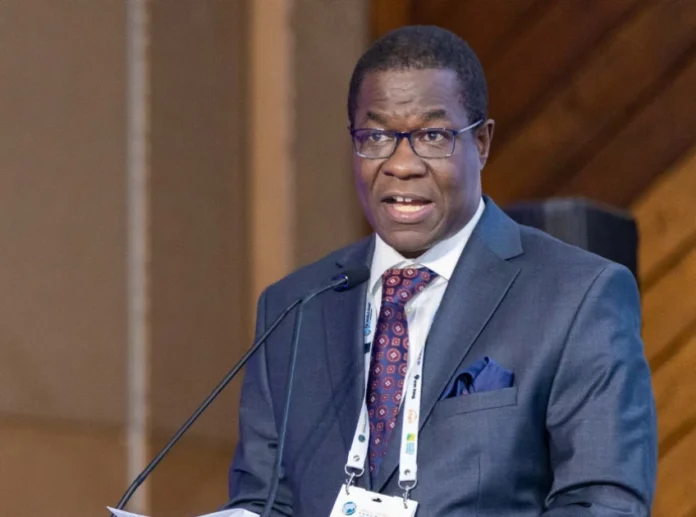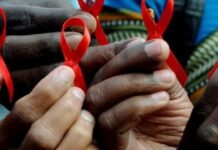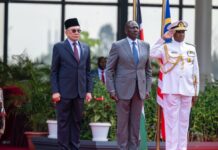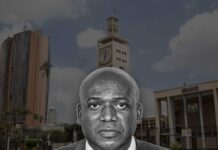Written by Lisa Murimi
Energy Cabinet Secretary Opiyo Wandayi has announced a bold new electricity distribution strategy aimed at curbing illegal power connections and improving safety in densely populated residential areas.
Speaking on Spice FM, Wandayi revealed that the government will soon roll out a bulk metering and billing system to address persistent challenges in high-density neighborhoods.
“We are coming up with a solution called bulk metering, where ordinarily in estates where it would be difficult enforcing compliance by KPLC personnel, we plan to implement bulk metering,” he stated.
“This is in response to the unlawful connections, especially in built-up areas and neighbourhoods with high population intensity. We have had challenges controlling this menace due to security concerns,” said Wandayi.
Under the proposed system, one individual or legally registered entity will be designated to purchase electricity directly from Kenya Power and Light Company (KPLC) on behalf of an entire building, estate, or informal settlement.
This “bulk account holder” will redistribute power to individual households using sub-meters and collect payments from residents.
“The populations will agree on one person or one entity to be the point of contact with Kenya Power, and therefore KPLC bills that entity, that will then supply power to households and thereby collect revenue on our behalf,” Wandayi elaborated.
Kenya Power will install a single bulk meter at the entry point of the settlement, streamlining billing and reducing illegal tapping and overloading. Residents will still pay for their own consumption, but through a locally managed and legal structure.
The model is inspired by successful systems in other countries and is designed to work where direct KPLC connections are difficult to enforce due to congestion and safety concerns.
Beyond revenue assurance for KPLC, the plan is expected to significantly reduce fire hazards and power outages caused by unregulated wiring.
It also aims to foster cooperation between the government, local leaders, and communities.
Wandayi emphasized that public education and collaboration will be key to success. “We will work closely with local authorities to sensitise the public and implement this system efficiently,” he said.
The blueprint marks a major shift in energy distribution, prioritizing safety, access, and sustainable billing in Kenya’s urban informal settlements.



















